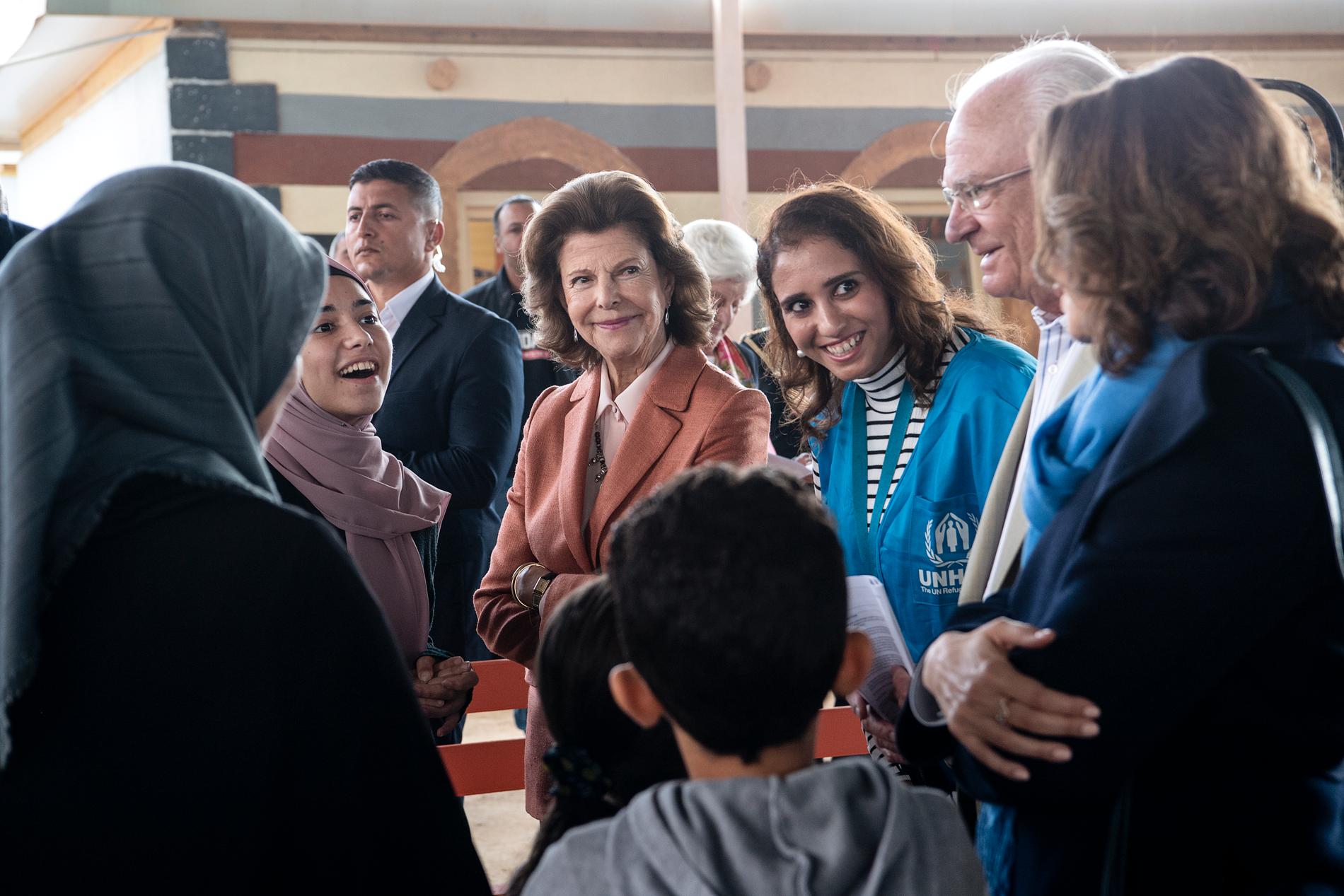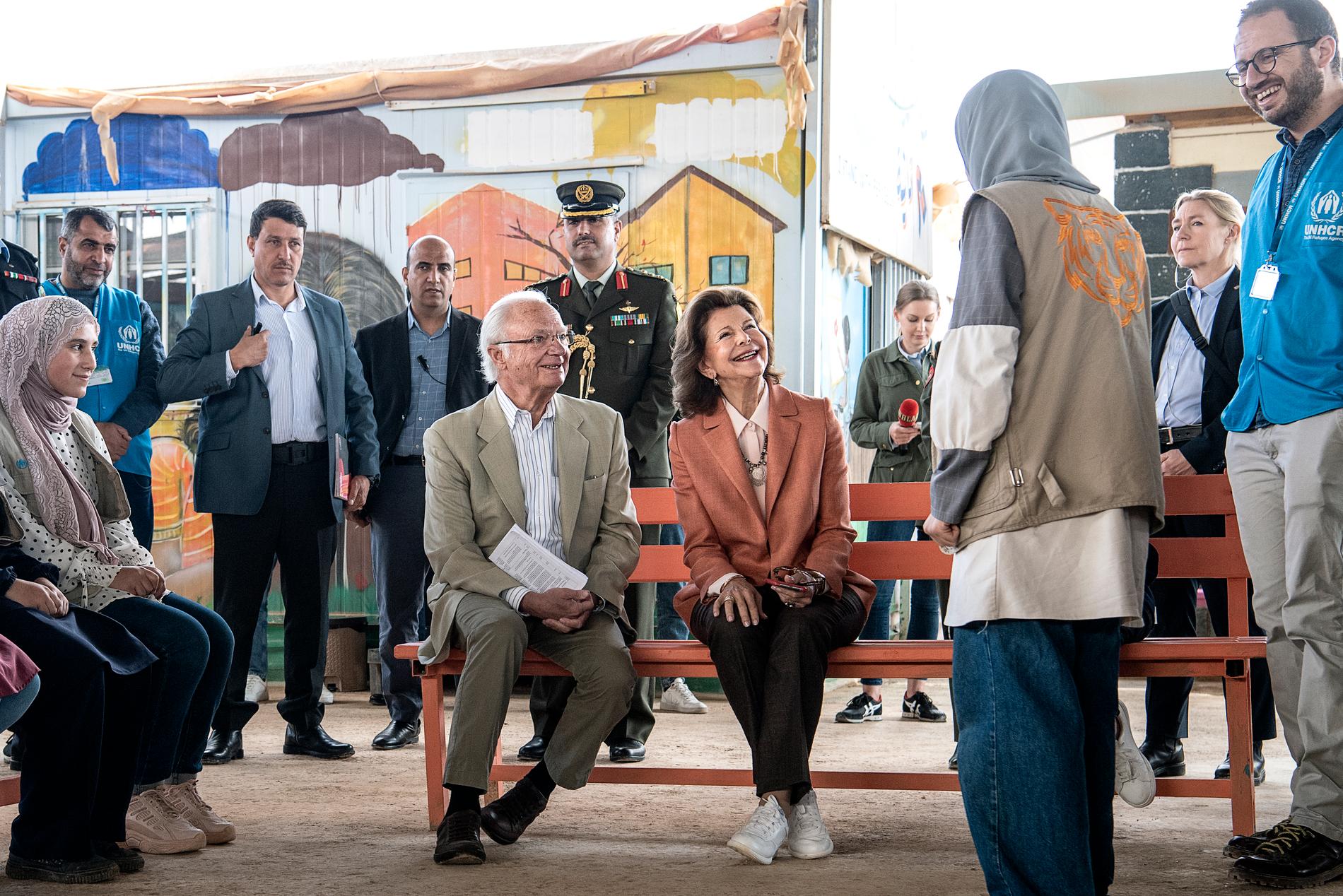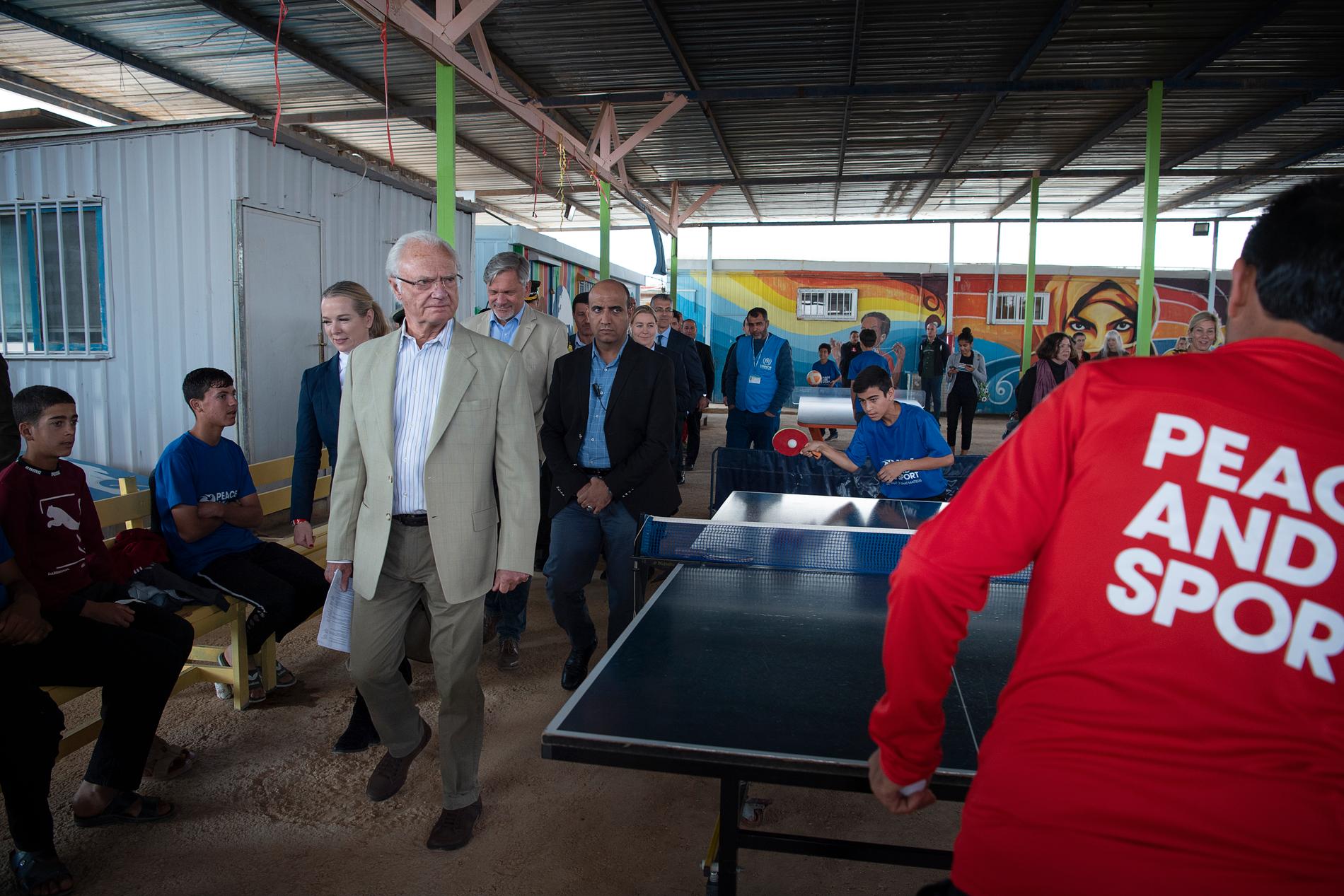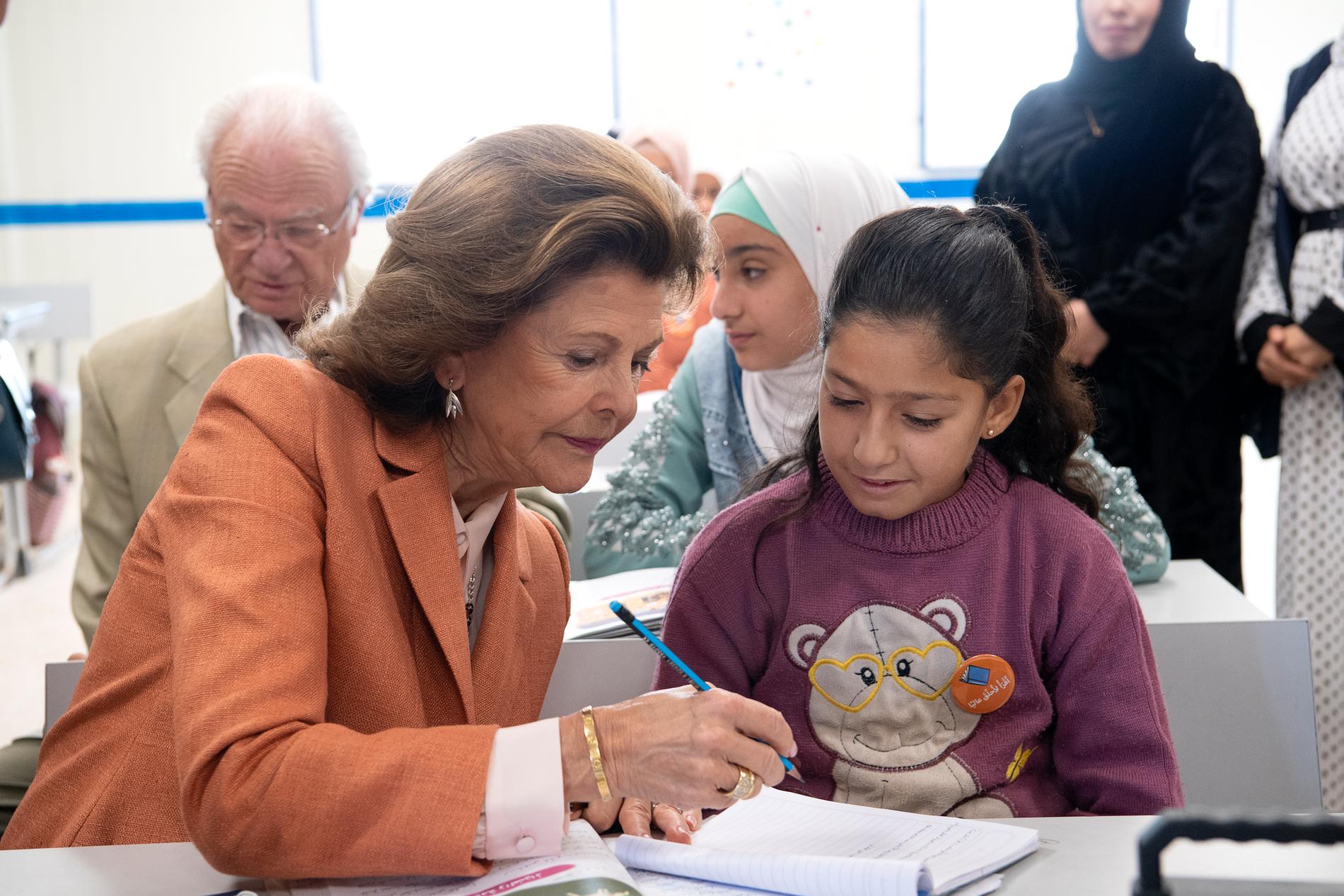The royal couple visited refugee camps in Jordan
Of:
Jenny Alexandersson
Published: Less than 3 hours ago
In the Zaatari refugee camp near the Syrian border, the royal couple meet families who fled the war.
In a very difficult existence, the children dream of a brighter future.
- It goes without saying that if you can contribute something, you do, says the king.
The ground dusts as the royal couple walks down one of the streets of Zaatari. The white dust settles in the clothes and stains the shoes white. Small children peek out from behind corners and in alleys. The refugee camp is the largest in the Middle East and actually one of the largest in the world.
Over 80,000 people live here in small square barracks. What was initially a few tents for the first hundred refugees who crossed the border in the desert landscape resembles a city ten years later.
- Most everything is here, such as schools and activity centres. And we've looked into a room here where they can use computers and get some training. It is clear that you are always a refugee and that is what is so boring and terrible, says the king.
The royal couple visited refugee camps in Jordan. Photo: JERKER IVARSSON / AFTONBLADET
It is the UNHCR that, together with the Jordanian state, is responsible for the camp. Photo: JERKER IVARSSON / AFTONBLADET
"It's all very complex"
He says that it is very difficult for many refugees to get a work permit and the opportunity to work. But there is hope and the situation for the refugees is developing all the time.
- Now we've only been here for a few hours and it's all very complex. But many have assimilated in Jordan, they have jobs and live tolerably in various places around the area, says the king.
Over 20,000 children have been born in Zaatari and there are health facilities to care for the sick. Over 1800 small shops have been opened by Syrian refugees. They run along the main street like little holes in the wall. There are bicycle workshops, fruit sellers and much more.
Not accepting more refugees
It is the UNHCR that, together with the Jordanian state, is responsible for the camp.
- It is of course a more difficult situation today when the economic crisis is here, says Dominik Bartsch who represents UNHCR in Jordan.
He adds that Jordan is traditionally a very hospitable country that sees Syrians as its sisters and brothers.
- There is no hesitation in taking care of those who flee across the border.
But since 2018, Zaatari does not accept more refugees, there is simply no room.
The king and queen step into one of the classrooms. In the mornings the girls go to school and in the afternoons it's the boys' turn. The queen sits down next to one of the students and they chat with the help of an interpreter.
The queen writes her name in the girl's notebook and points to herself. Photo: JERKER IVARSSON / AFTONBLADET
"My name is Silvia"
The queen writes her name in the girl's notebook and points to herself.
- My name is Silvia.
The girl gently smiles and puts her finger under the letters and reads aloud. Silvia!
- We spoke to a family who came here ten years ago. They have seven children and some children were born here and the youngest have not been outside this camp. We have also met other young people here. One of them studied at a nearby university. She takes a bus from here which takes about 45 minutes. And there are more people who are getting an education, so there is some light at the end of the tunnel for those who have the opportunity to study further, says the king.
- Many of these young people have dreams. They dream of becoming journalists, they dream of becoming surgeons and they dream of getting an education, says the Queen.






Inga kommentarer:
Skicka en kommentar